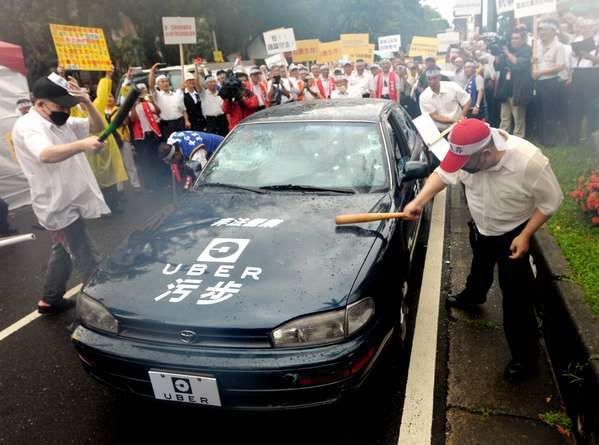
Uber, the minicab app valued at a staggering $66bn, will halt all its services in Taiwan, the east Asian island with a population of over 23m from next week.
Since the ride-hailing app first launched there four years ago Uber drivers in Taiwan completed approximately 15m trips.
However, the app’s growing popularity provoked discontent from domestic taxi drivers, who staged a protest last year demanding government action against Uber.
Taiwan’s Ministry of Transportation and Communications (MOTC) responded to intensifying demands last month, raising fines against unlicensed ride-sharing services to the highest level globally — a maximum of NT$25m ($780,000).
Uber — the most valuable startup in the world — was subsequently forced to suspend its operations in the region.
“Unfortunately, the government has moved further and further away from embracing innovation and setting the stage for a 21st century transportation policy,” the Uber Taiwan team said in a statement issued today.
“Uber’s driver-partners, hard working, ordinary Taiwanese citizens, face greater penalties than ever for providing people a safe ride across town. At the same time, we recognize that the MOTC is under pressure to escalate enforcement in accordance with new legislation.”
In December 2014, just over a year after Uber launched in Taiwan, the country’s minister of transportation and communications called the company’s business model “illegal”.
Since then, the San Francisco-based company faced repeated calls from the Taiwanese authorities to comply with demands to register as an official taxi service and follow the same safety and insurance standards as other companies in the transportation industry.
“The problem is that as technology advances, disruptive innovation will become more and more common. Uber disrupts the taxi industry; Airbnb disrupts the hotel industry and there are many more examples. We cannot use yesterday’s law to regulate tomorrow’s economy,” said Jason Hsu, a Taiwanese member of parliament and a founding member of the Taiwan FinTech Association in an interview with Verdict.
“As a member of Parliament and legislator, I will propose new laws to better regulate the digital economy in Taiwan.”
Uber is outlawed in other major cities across the world including Barcelona, Vancouver, and Hamburg.
From next week, Uber will no longer operate in Taiwan, one of the few markets where it faced no competition from other ridesharing apps.







